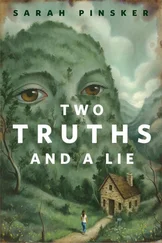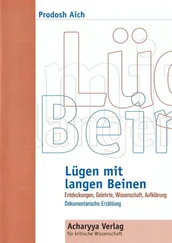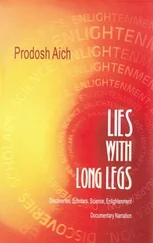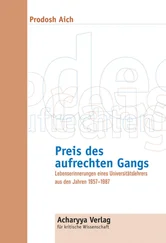A more ambitious journey I took in 1841 with a friend of mine, Baron von Hagedorn. He was a curious and somewhat mysterious character. He had been brought up by a great-aunt of mine, to whom he was entrusted as a baby. No one knew his parents, but they must have been rich, for he possessed a large fortune. He had a country place near Munich, and he spent the greater part of the year in travelling about and amusing himself. He had been brought up with my mother and other members of our family, and he took a very kind interest in me. ... Hagedorn, with all his love of mystery and occasional exaggeration, was certainly a good friend to me. He often gave me good advice, and was more of a father to me than a mere friend. He was a man of the world, and therefore his advice was not always what I wanted. (Hagedorn is already introduced. We won’t repeat our comments mentioned in our chapter three.) He was also a great friend of my cousin who was married to a Prince of Dessau, and they had agreed among themselves that I should go to the Oriental Academy at Vienna, learn Oriental languages, and then enter the diplomatic service. As there were no children from the Prince’s marriage, I was to be adopted by him, and, as if the princely fortune was not enough to tempt me, I was told that even a wife had been chosen for me, and that I should have a new name and title, after being adopted by the Prince. (His only cousin Emilie is also introduced. We won’t repeat our comments in our chapter three.) To other young men this might have seemed irresistible. I at once said no. It seemed to interfere with my freedom, with my studies, with my ideal of a career in life; in fact, though everything was presented to me by my cousin as on a silver tray, I shook my head and remained true to my first love, Sanskrit and the rest. Hagedorn could not understand this; he thought a brilliant life preferable to the quite life of a professor Not so I. (Friedrich Maximilian with all his handicaps is only seventeen years old.) He little knew where true happiness was to be found, and he was often in a very melancholy mood. He did not live long, but I shall never forget how much I owed him. When I went to Paris, he allowed me to live in his rooms. They were, it is true, au cinquième, but they were in the best quarter of Paris, in the Rue Royale St. Honorè, opposite the Madeleine, and very prettily furnished. This kept me from living in dusty lodgings in the Quartier Latin, and the five flights of stairs may have strengthened my lungs. I well remember what it was when at the foot of the staircase I saw that I had forgotten my handkerchief and had to toll up again. But in those days one did not know what it meant to be tired. Whether my friends grumbled, I cannot tell, but I myself pitied some of them who were old and gouty when they arrived at my door out of breath.”
End of the chapter on page 111. A palatable account. Entertaining. Nicely written. We shall keep this account, his first love, Sanskrit and the rest, the friend Hagedorn and cousin Emilie in memory. The next chapter titled “University” begins on page 112 with the lines:
“In order to enable me to go to the University, my mother and sister moved to Leipzig and kept house for me during all the time I was there – that is two years a half”, ...”
*****
The first semester of orientation of Friedrich Maximilianis over. We apologise for taking a tiny break to look back. This was needed. There is no indication that he discusses with his mother also “to get an idea of what I should like to study.” After this Semester of orientation, he has started selecting his subjects and his academic teachers. In the Winter Semester 1841/42 he attends 10 lectures:
1 Aeschyli Persae Gottfried Hermann
2 On Criticism Gottfried Hermann
3 German Grammar P. M. Haupt
4 Walther von der Vogelweide P. M. Haupt
5 Latin Society P. M. Haupt
6 Tacitus, Agricola, and De Oratoribus P. M. Haupt
7 On Hegel Weisse
8 Disputatorium (in Latin) Nobbe
9 Modern History Wachsmuth
10 Sanskrit Grammar Hermann Brockhaus
Friedrich Maximiliancontinues with Greek and Latin and puts special weight on the German language, which is his vernacular, and on vernacular literature. Other subjects of his first semester he has deleted. Lectures on Aesthetics, Anthropology, Psychologyand Hebrew Grammarhe will not repeat at Leipzig University. Instead, he adds Modern History and Sanskrit Grammar.
We note that “Sanskrit Grammar” taught by Hermann Brockhausin WS 1841/1842 is Friedrich Maximilian Müller’s first encounter with Sanskrit.
One year at Leipzig University has passed. Friedrich Maximilian Mülleris presently 18 and half years old. There is no indication that he discusses any matters regarding the progress of his life as a student at the university with his mother or with anybody else. In his third semester (SS 1842), he has further selected his subjects. He attends the following seven lectures:
1 Pinder Gottfried Hermann
2 Nibelungen P. M. Haupt
3 Latin Society P. M. Haupt
4 Plauti Trinumus Becker
5 Arabic Grammar Fleischer
6 History of Oriental Literature Hermann Brockhaus
7 Nala Hermann Brockhaus
Obviously, Friedrich Maximilian Müllercontinues with Greek, Latin and German literature. He adds Arabic Grammar. Why does he add "Arabic Grammar”? Is this an indication that he has begun to develop an affinity towards “Orient” in general? “Hebrew Grammar” in his first semester we have noted. Obviously, he is not confident yet about which oriental language would suit to his interests. We raise this issue as a question because we do not get any indication from Max Müllerin this regard.
Friedrich Maximiliandoes not know yet where “Orient” begins and how far it is stretched. It is not his personal deficiency. Europe does not know yet where “Orient” begins and how far it is stretched. Again, we apologise looking a little ahead. We shall deal with this issue in the next chapter. Moreover, how should he be able to differentiate at the age of just passed 18, if the only teacher for Sanskrit at Leipzig University, Hermann Brockhaus, mixes up “Oriental Literature” and “Sanskrit Literature” ? Hermann Brockhausdoes not include Arabic literature in his “Oriental Literature”. Arabic Grammar is taught, as indicated, by Professor Fleischer whose first name is not known to us. And Hermann Brockhausdoes not know Arabic.
Hermann Brockhausoffers “History of Oriental Literature” and “Nala” . Nala is a tiny episode in the gigantic epic Mahabharatawritten in a language calledSanskrit, which was “deciphered” by the early European “Indologists” through plenty of available Arabic and Persian translations of Sanskrit literature. Hermann Brockhausobviously uses this tiny Sanskrit Text as a follow up course of his lecture on Sanskrit Grammar.
We withdraw the term ‘early European “Indologists”’ as it might lead to misunderstandings. The term “Indology” is created in Germany only. There is no record that the language namedSanskrit has ever been taught in Europe before 1803. It was a private lesson in Paris then. Institutional teaching of the language namedSanskrit in Europe begins quite a few years later. Presently we write the year 1842. We shall deal with Sanskrit and “Indology” in separate chapters later in due course.
Читать дальше












